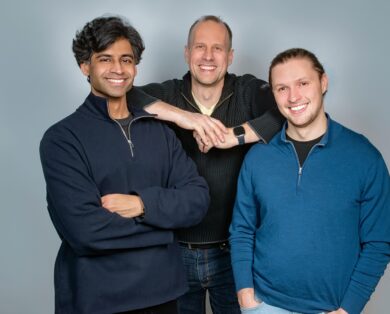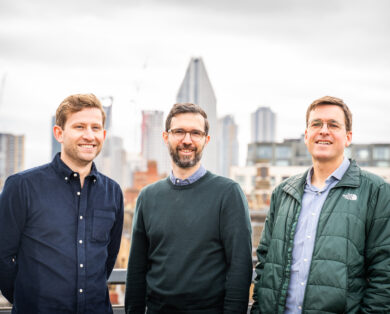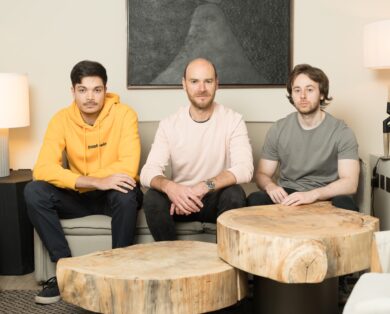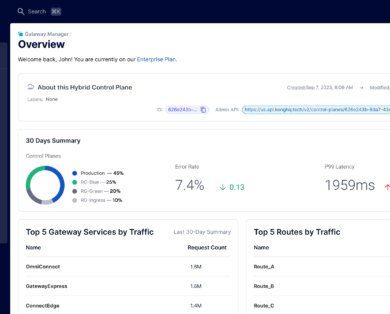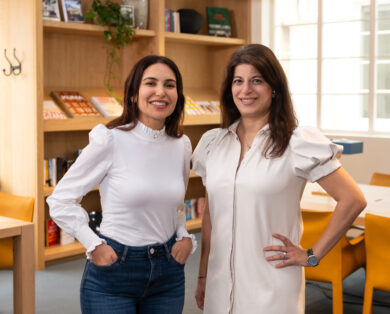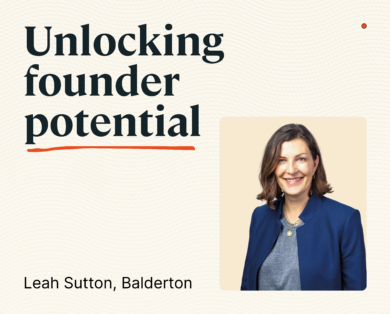- Portfolio News
- 05 February, 2025
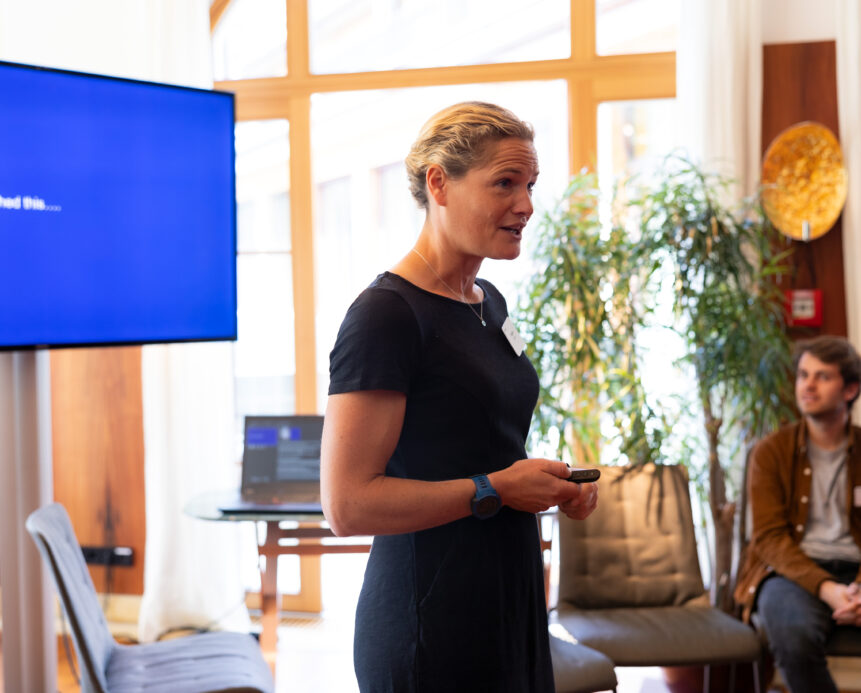
As the latest event in our Founder Wellbeing and Performance series, we were delighted to welcome Sophie Bostock, The Sleep Scientist, as our webinar host.
Sophie is on a mission to help millions of people improve their lives by unlocking the science of sleep and performance. We loved her session at our CEO Retreat in 2022, so we were delighted to bring her back to speak to a wider audience.
Sleep quality is about much more than just hours.
Most of us know that to achieve peak cognitive performance, most adults need 7 hours of sleep, or more. But the quality of that sleep is just as important, and is determined by multiple external and internal factors.There are four different sleep stages (though your sleep trackers might simplify these into ‘light’ and ‘deep’ sleep). Stage 1 is very light sleep – we typically only have around five minutes of this, and it doesn’t do a whole lot. Stage 2 kicks in about ten minutes into the night, and this is where memory starts to be consolidated and where sleep starts to get cognitively useful. Stage 3 is really rich for physical restoration, with benefits for immune function, energy, memory, inflammation, and more. Towards the second half of the night, you get REM sleep, which brings benefits for creativity, memory and emotional regulation .In any 24 hour period, our sleepiness rhythm is controlled by three key elements. If you understand each one of these, you can then leverage them to optimise your sleep quality:
- Circadian rhythms
Physiologically, every function and cell in our body is programmed to operate on a 24 hour cycle. The more we maintain a regular rhythm (for example by waking up at the same time every day), the more chance we have for each individual system to be in sync. This is called circadian synchrony.
If you have a haphazard rhythm, the brain cannot anticipate what’s going to happen next. Cycles go out of sync, and it creates stress for the body. This explains why shift workers are unfortunately at increased risk for a lot of health conditions.
Light exposure is one of the most powerful tools we can use to regulate our circadian rhythms – from starting the day with natural light, to ending the day by dimming the lights.
2. Sleep pressure
The longer you’ve been awake, the more you build up a pressure to sleep. In order to release energy, your cells use a molecular fuel called ATP. A side product of this process is adenosine, which makes you feel drowsy. So the more energy you expend, the sleepier you become, until you go to sleep, mop up that adenosine and the cycle begins again.
Caffeine temporarily blocks adenosine receptors in the brain, and tricks you into thinking you’re not sleepy and disrupts your sleep pressure. There is a lot of natural variation in how quickly we metabolise caffeine, but studies have shown that coffee consumed eight hours before bed can still disrupt the quality of your sleep.
3. Stress system
Our brains are oriented so that new information, lack of control and unpredictability, and threats to our survival or status are all triggers that unleash a cascade of stress hormones – adrenaline and cortisol, which keep us on high alert.
It explains why ‘coronasomnia’ became such a common issue during the pandemic. Many people were anxious for themselves and their families, life was unpredictable; this stress had a direct effect on people’s sleep.
Sometimes an act as simple as reading work emails late at night can trigger a stress response that has a negative effect on sleep quality. In fact, studies have shown that your cortisol levels are higher when your phone is in sight or nearby. When you hear it, or even when you think you hear it, you are literally on edge.
As we get older, our sleep quality naturally deteriorates – so it’s even more important that we take action to preserve it.
Sophie Bostock The Sleep Scientist
Sleep deprivation is cumulative, and the consequences can be serious.
Sleep deprivation doesn’t necessarily happen over one night. Small instances of sleep deprivation over time start to accumulate, creating what we call a sleep debt. But we don’t always notice this and over time, we convince ourselves that we’re coping. The longer we’ve been sleep deprived, the less likely we are to notice the impacts – what’s known as ‘re-norming’.The simplest way to detect sleep deprivation is to use a psychomotor vigilance test (or PVT), which measures reaction times. Studies have shown that if you only get six hours of sleep for ten consecutive nights, you’re in fact operating at a similar level to someone who hasn’t slept at all for 24 hours. The more days and nights you’ve been sleep deprived, the more likely you are to fall into ‘microsleeps’ – random pauses where part of the brain literally switches off. Microsleeps can probably explain at least one in five car accidents.
The simplest way to detect sleep deprivation is to use a psychomotor vigilance test (or PVT), which measures reaction times. Studies have shown that if you only get six hours of sleep for ten consecutive nights, you’re in fact operating at a similar level to someone who hasn’t slept at all for 24 hours.
The more days and nights you’ve been sleep deprived, the more likely you are to fall into ‘microsleeps’ – random pauses where part of the brain literally switches off. Microsleeps can probably explain at least one in five car accidents.
If you’ve ever been reading a document when a little tired, and by the time you get to the end of the document realise you have no idea what you just read, chances are you may have experienced a microsleep.
Sophie Bostock The Sleep Scientist
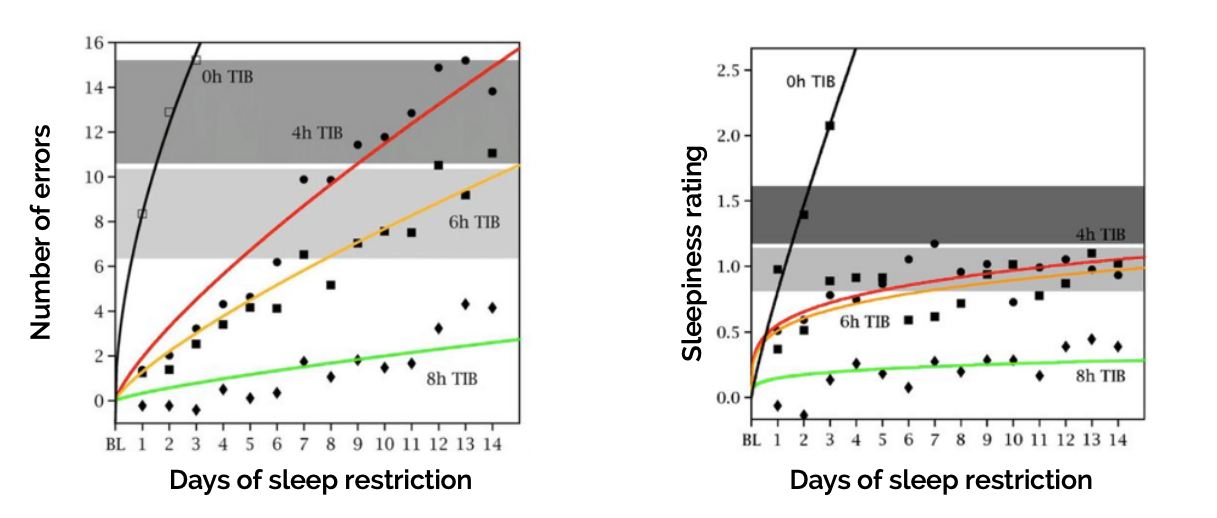
It doesn’t have to be rocket science. There are simple steps you can take to improve your sleep quality.
Sophie shared some incredible tips throughout the session, including:
- Wake up at the same time every day – and ditch the snooze button!
- Seek out bright light in the morning to help kickstart your circadian rhythms.
- Use a sleep mask or blackout blinds at night.
- Avoid eating up to two hours before bedtime, and switch to caffeine by default.
- Get outdoors, into nature – up to 2 hours per week of exposure to nature can have significant benefits for stress reduction.
- To relax easily at night, it can help to rehearse relaxation in the day. Try breathwork, yoga, meditation, journaling – anything that gives yourself permission to pause.
- A consistent bedtime routine will also go a long way to helping you relax before sleep.
- And our favourite piece of advice: If you travel often, find something warm and comforting to help you relax before sleep. Even NASA recommends astronauts take a cuddly toy to space with them!
Learn more about The Sleep Scientist here.
